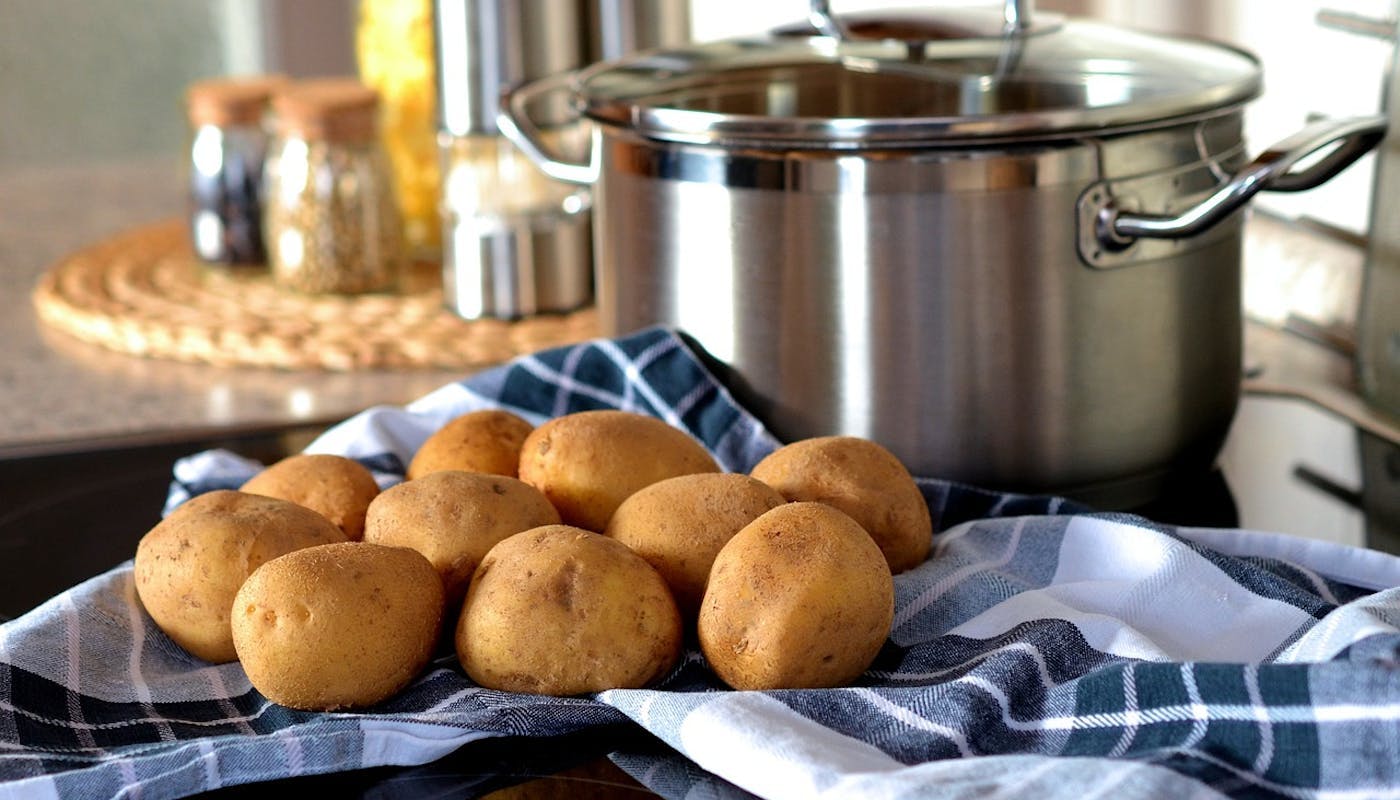Is Starch Bad for Dogs?
Can dogs digest starch – and do they need it? We’ll look at the best sources of starchy carbohydrates for dogs in this article.
What is Starch?
Starch is a type of complex carbohydrate which is found in grains, legumes and vegetables.
Starch supplies slow-release energy to the body, which is important for active dogs. While they can get this energy from protein, starchy carbohydrates provide useful backup. That’s why you’ll find starch in most dog food – at a rate between 30 and 60%.
What's Wrong with Starch in Dog Food?
Some people argue that dogs don’t need starch, and it’s true that they don’t need it the way humans do. They’ve evolved to require protein, fat and vitamins, but not starchy carbohydrates.
Some experts suggest that a diet high in starch can increase insulin release inside the body, which can (over time) prompt the development of insulin resistance, diabetes, or obesity.
But, as far as we are aware, there is currently no conclusive scientific evidence that starch is bad for dogs, and there’s no link between diabetes and starchy foods either.
Still… with all the bad press, why does starch wind up in commercial dog food?
Well, along with providing energy, starch helps to make our dogs feel full and satisfied after dinner.
What’s more, starchy ingredients help to reduce the cost of dog food, and some even supply extra vitamins. Most owners like the idea of feeding our dogs a varied diet which includes vegetables and grains.
When Did Dogs Start Eating Starch?
Research shows that our dogs have adapted to eat carbs, since they now have more of the genes involved in starch digestion and fat metabolismhttps://pubmed.ncbi.nlm.nih.gov/23354050/ than their ancient ancestors (wolves). Another studyhttps://pubmed.ncbi.nlm.nih.gov/27406651/ showed that this adaptation probably happened before dogs were domesticated, as it correlates with agricultural development around the world. (In other words, dogs adapted to eat yams wherever they were available!)
Choosing the Right Starch
All carbohydrates are not equal! If you are feeding your dog a homemade diet (or supplementing their dry food with occasional extras), it’s important to know your starches.
As a rule of thumb, look for low GI (Glycaemic Index) foods – they’re the ones which cause the lowest increase in blood sugar, so they supply a stable output of energy.
Here are some good starches with extra benefits for dogs:
- Carrots. With extra vitamin A – great for eyesight and immunity.
- Sweet potatoes. With vitamins A, C, potassium and iron.
- Brown rice. Much lower in glucose than white rice, brown rice delivers vitamin B2 and plenty of digestion-boosting fiber.
- Yams. Like sweet potatoes, yams contain vitamins A, C and B6.
- Apples. Packed with antioxidants and fiber, apples are great for slicing and freezing for pups 9 (just make sure you’ve removed the seeds).
- Peas and green beans. High in fiber with extra vitamins A, K, and C.
- Lentils. They’re little powerhouses of protein and packed with nutrients, too – including iron.
Dogs don’t really need a high proportion of carbohydrates in their dish, so keep the starchy ingredients to less than 30%, making up the rest with plenty of delicious protein. Result: a dish your dog will love!
Further Reading
Vegetarian owners, find out whether dogs can survive on a vegan diet!/learn/dog-food/can-dogs-be-vegan-or-vegetarian Read our checklist to find out if your dog’s diet is good/learn/dog-food/5-signs-that-something-is-wrong-with-your-dogs-diet. If you’re thinking about making a change, learn about the pros and cons of changing your dog’s food/learn/dog-food/should-i-change-my-dogs-food. We have a guide to choosing the best food for your dog – including raw, dried, and homemade. One of our favorite supplements is fish oil – find out why we rate it./learn/dog-supplements/fish-oil-for-dogs-what-do-i-need-to-know
